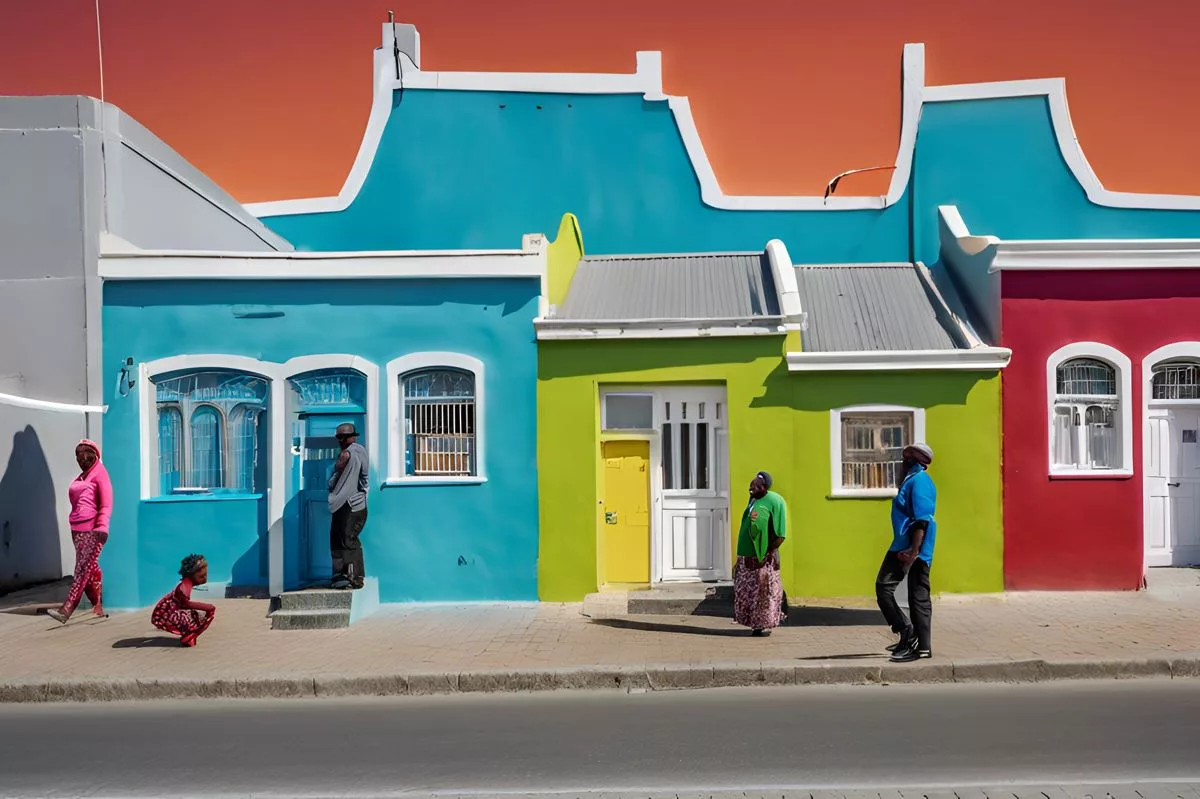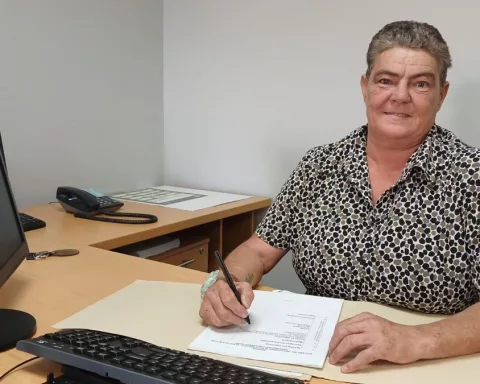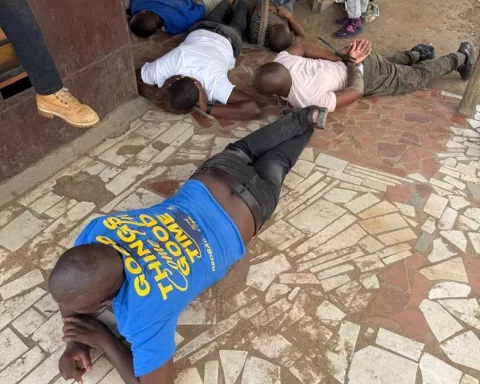Manenberg’s Social Support Drive is a shining example of community strength and care. Launched on September 29, 2024, this initiative helps residents apply for financial aid, like reduced electricity costs and debt management, offering a vital lifeline to those in need. Set against the backdrop of Manenberg’s rich history, this effort not only supports families facing tough times but also celebrates the suburb’s vibrant culture. With easy ways to apply for help and a strong focus on inclusion, the drive shines brightly as a beacon of hope for a brighter, more resilient future.
What is Manenberg’s Social Support Drive?
Manenberg’s Social Support Drive is a community initiative aimed at assisting residents in applying for various forms of financial aid. Launched on September 29, 2024, it provides essential support like subsidized electricity and debt management, fostering resilience and inclusivity in the suburb’s historically rich environment.
A Community’s Resilience Shines Through
In the often overlooked but vibrant suburb of Manenberg, a recent social initiative has beautifully showcased the power of community and resilience. On 29 September 2024, the City organized a drive to assist residents in applying for various forms of social support, aiming to uplift those grappling with economic hardship. This initiative is not just a bureaucratic task; it is a vital lifeline for those struggling to make ends meet.
Manenberg carries a rich and storied history, having emerged during the apartheid era as a segregated township. Its streets, alive with a blend of culture and struggle, tell tales of enduring spirit. The City’s social support drive, imbued with a sense of historical responsibility, sought to provide relief to those facing financial strain, reflecting a deep commitment to the community’s well-being.
Building a Sustainable Framework for Support
The City’s efforts go beyond merely distributing aid; they are about establishing a sustainable support framework. The initiative encourages residents across the metro facing hardships to visit their nearest Customer Interaction Centre. Here, they can determine their eligibility for various forms of support, including subsidized electricity and debt management. This proactive approach ensures that no one falls through the cracks, fostering a more inclusive support system.
Councillor Siseko Mbandezi, the City’s Mayoral Committee Member for Finance, emphasized the importance of this initiative. “The City offers some of South Africa’s highest allocations of free water at 15kl and sanitation at 10.5kl, along with up to 60 free electricity units. We urge residents who need assistance to reach out to us. We can’t provide help if we are unaware of their circumstances,” he stated. Mbandezi’s words reflect a commitment to transparency and active engagement with the community.
Accessible and Thorough Registration Process
The process for registering as indigent, while detailed, is designed to be accessible. Successful applicants only need to re-apply every twelve months, but for residents aged 60 and above, their applications remain valid until the next municipal property valuation, expected on 30 June 2026. This provision offers elderly residents stability, acknowledging their vulnerabilities and providing peace of mind.
To qualify for indigent support, residents must meet several criteria. They must be homeowners with a monthly income of R7,500 or less, own only one property, and be the full-time occupant of their home. The property must primarily serve residential purposes. Special considerations apply to children living in the home of a deceased parent, individuals who received their house through divorce settlements, and those relying on pensions or social grants.
The detailed application process ensures that support reaches those in genuine need. Applicants must provide proof of identification, bank statements or sworn affidavits if they lack bank accounts, and bond statements or affidavits if they do not have bond accounts. Those who have inherited their homes must include relevant estate documents.
Rigorous Documentation for Effective Support
Employed residents need to submit their latest salary or wage pay slips or a letter from their employer stating their income. Self-employed individuals must provide sworn affidavits declaring their monthly earnings. Proof of any disability grants, maintenance grants, or pensions received is also necessary. Unemployed applicants must provide sworn affidavits confirming their unemployment status and lack of other income sources. This meticulous documentation process ensures that the support system maintains its integrity and sustainability.
Manenberg’s social support drive is a poignant reminder of the power of community and the significance of structured aid. It reflects a broader movement within South Africa, aiming to bridge the gap between economic hardship and sustainable living standards. The historical and artistic narratives of struggle and resilience underscore the City’s initiative, acting as a modern testament to this dynamic.
Enhancing Accessibility in Public Services
The initiative highlights the importance of accessibility in public services. By setting up Customer Interaction Centres, the City has created a direct line of communication between the government and its citizens. This approach is reminiscent of participatory governance models championed by progressive movements worldwide, emphasizing inclusive and responsive governance.
Moreover, the drive underscores the pivotal role of local governance in addressing socio-economic challenges. While national policies often dominate discussions, it is at the municipal level that community needs are best understood and addressed. The City’s initiative in Manenberg serves as a microcosm of effective local governance, where policies are tailored to the community’s specific needs.
Cultural Significance and Historical Acknowledgment
The cultural fabric of Manenberg, rich with music, art, and history, adds another layer of significance to the support drive. The suburb has produced notable figures in jazz and other art forms, symbolizing a community that, despite its challenges, continues to contribute to South Africa’s broader cultural landscape. In this context, the social support drive is not just about economic relief; it is about preserving and nurturing Manenberg’s socio-cultural vitality.
By weaving a narrative of support, the City acknowledges the historical injustices that have shaped communities like Manenberg. The focus on sustainable support mechanisms aims to rectify past wrongs and pave the way for a more equitable future. The social support drive thus becomes a beacon of hope, illuminating the path towards resilience and self-sufficiency for Manenberg’s residents.
Through this initiative, the City demonstrates its commitment to fostering an environment where all residents can thrive. By addressing both immediate needs and long-term stability, the support drive in Manenberg stands as a testament to the power of coordinated, community-focused efforts. It serves as an inspiring model for other communities facing similar challenges, showing that with the right support, resilience and hope can flourish even in the most trying circumstances.
FAQ: Manenberg’s Social Support Drive
What is Manenberg’s Social Support Drive?
Manenberg’s Social Support Drive is a community initiative launched on September 29, 2024, aimed at assisting residents in applying for various forms of financial aid. The drive provides vital support, including subsidized electricity costs and debt management, to help residents facing economic hardship.
How can residents apply for assistance through the drive?
Residents can visit their nearest Customer Interaction Centre to determine their eligibility for support. The application process is designed to be accessible, ensuring that residents can easily navigate the requirements to receive assistance.
What are the eligibility criteria for receiving support?
To qualify for indigent support, applicants must be homeowners with a monthly income of R7,500 or less, only own one property, and be the full-time occupant of their home. Special considerations apply for children living in the home of a deceased parent and those relying on pensions or social grants.
What documentation is required for the application process?
Applicants must provide various documents, including proof of identification, bank statements or affidavits, and income statements (for employed residents). Self-employed individuals need to submit sworn affidavits declaring their earnings, while unemployed applicants must confirm their status through sworn affidavits.
How often do residents need to reapply for assistance?
Successful applicants are required to reapply every twelve months. However, for residents aged 60 and above, their applications remain valid until the next municipal property valuation, which is expected on June 30, 2026. This provision ensures stability for elderly residents.
Why is the social support drive significant for the Manenberg community?
The social support drive not only provides economic relief but also acknowledges the rich history and cultural significance of Manenberg. It aims to foster resilience and inclusivity, serving as a beacon of hope for residents facing challenges, and reflects a commitment to addressing the socio-economic needs of the community.












